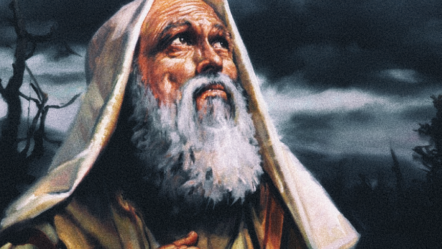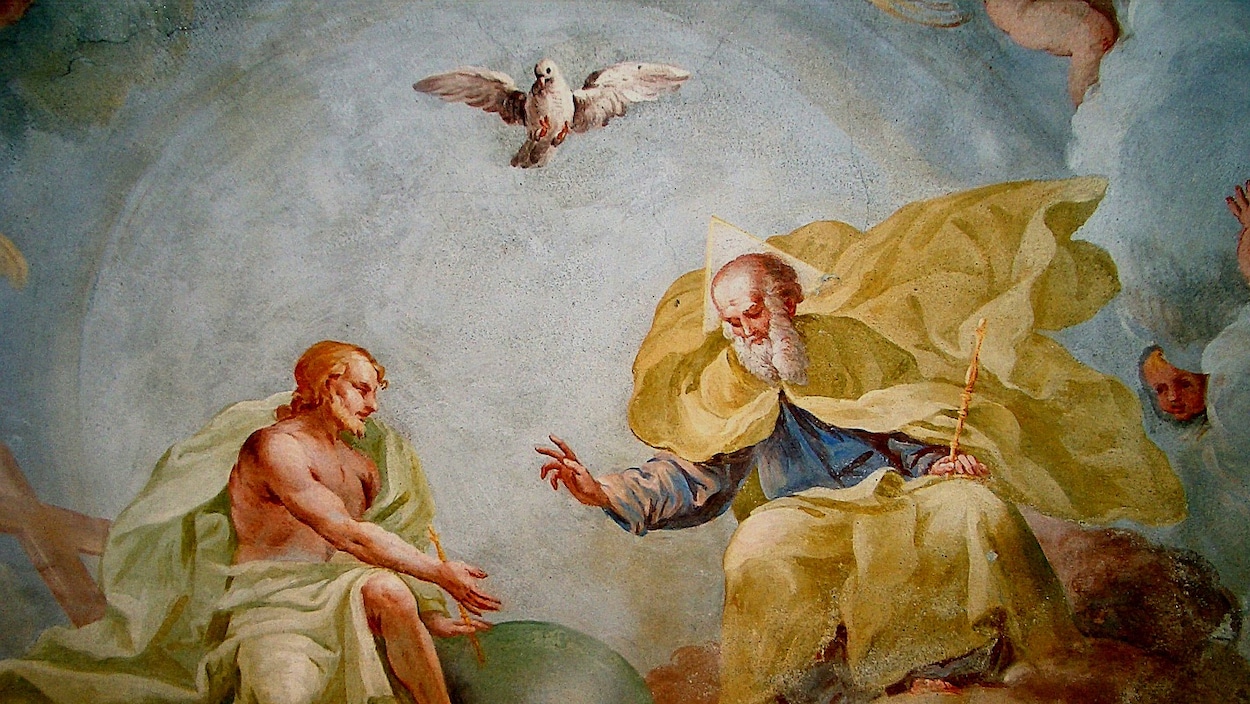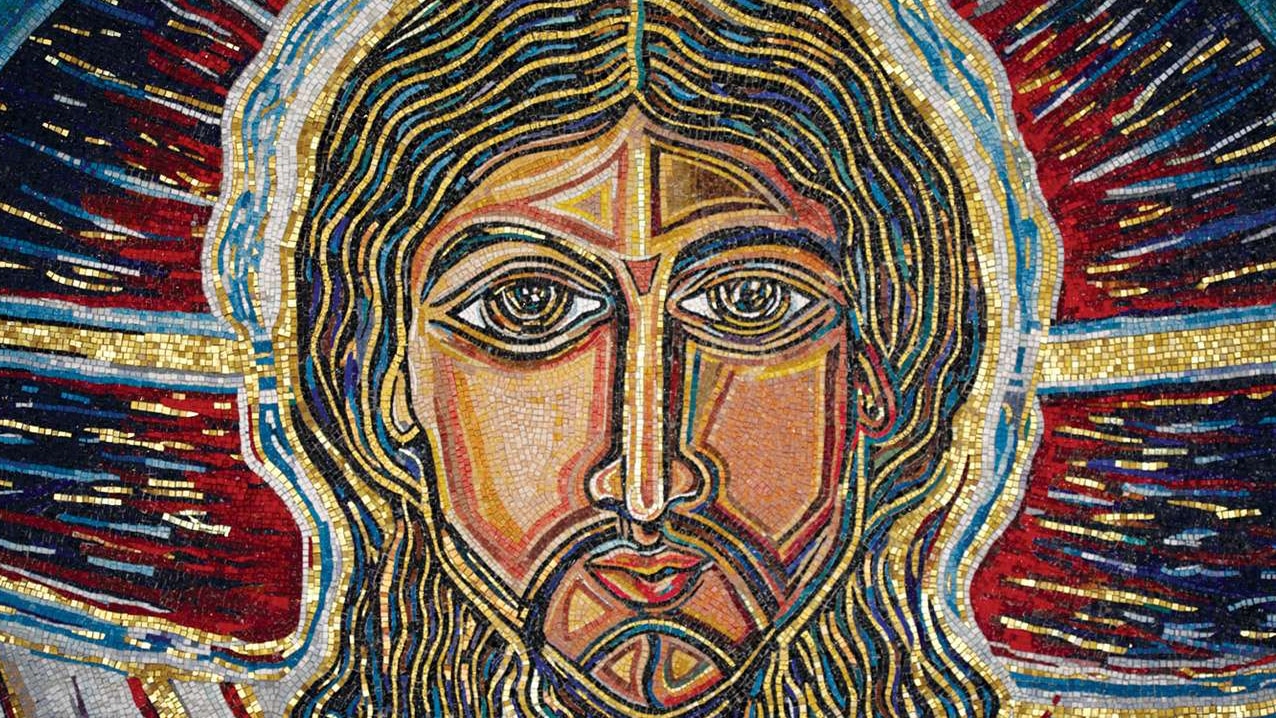The hatred of Jews is manifest once again in the massacre of hundreds of Israelis, including unborn children slashed from their mother’s wombs and beheaded before their parents’ eyes. Equally disgusting are the gleeful celebrations of that barbarism that took place around the world. Ancient facts rush once again to mind.
The Son of God was Himself a Jew as were his ancestors. A Jewish woman carried him in her womb, nursed him, loved him more than anyone else ever could, and shared not only His life but also His suffering and death. His foster father was also a Jew, as were John who baptized Him and Peter and the other apostles whom He chose to carry His message to the world.
Why did the Creator choose Jews to be His Son’s family and followers when he could have chosen any other people? The answer can be found in Deuteronomy (7:7-9): “The Lord did not set his affection on you and choose you because you were more numerous than other peoples, for you were the fewest of all peoples. But it was because the Lord loved you and kept the oath he swore to your ancestors that he brought you out with a mighty hand and redeemed you from the land of slavery, from the power of Pharaoh king of Egypt. Know therefore that the Lord your God is God; he is the faithful God, keeping his covenant of love to a thousand generations of those who love him and keep his commandments.”
If God loved Jews so much, why did He allow them to be treated so savagely? It is not a new question. It was asked two millennia ago when His Jewish son died on the cross, and again when millions of Jews perished in the Nazi holocaust. The answer remains a mystery.
The hatred of Jews is as old as recorded history. As the Encyclopedia Britannica explains, Jews were hated in ancient Greece and Rome because they rejected the prevailing paganism and instead worshipped a single God. Christ and his followers, being Jews, worshipped that God too, so for a time there was no hatred between them. Later, however, the Jewish leaders’ refusal to embrace the New Testament and the Church that preached it, led to a theological breach. And with it came animosity.
The Romans’ destruction of the Jerusalem Temple in 70 A.D., Britannica notes, gave rise to the notion that God was punishing the Jews for their supposed role in killing His Son, a charge that became entrenched and was influential for centuries. St. Augustine embraced that fashionable hatred in the fourth century and it was still present in the twelfth, when Martin Luther accused Jews of “murder, cursing, blaspheming, lying and defaming” and declared, “We are at fault for not slaying them.” (The Catholic Church formally repudiated the charge of killing Christ in 1965, eight centuries later!)
The twelfth century also produced the slandering of Jews known as “blood libel,” the belief in the “Jews’ sacrifice of Christian children at Passover to obtain blood for unleavened bread,” a belief no less powerful for being absurd. (It would be re-asserted in the early 20th century with evil intent by the Nazis.)
From roughly 1300 to 1600, resentment of Jews’ success in trade, banking, as well as their intellectual achievements, provided additional reasons for hating them. Britannica further notes that in the 17th century “Jews remained subject to occasional massacres, such as those that occurred during wars between Eastern Orthodox Ukrainians and Roman Catholic Poles;” in the 18th century, Enlightenment thinkers blamed them for having given rise to Christianity; in the 19th, “pseudoscientific theories” proclaimed Jews biologically inferior. The 20th century brought the most vicious and inhumane treatment of Jews of all in the Holocaust that was intended to kill the entire population.
After WW2 the anger abated when the Jews were given their own homeland, Israel, and it seemed the most hated people in the history of mankind would at last be welcomed by the world. But that notion proved false when Muslim countries, who had long been among the least hateful of the Jews, became the most hateful. And their calls to drive Jews into the sea, murder them, and wipe them off the planet have re-kindled the ancient hatred among others.
So much for the hatred of Jews being the oldest hatred. But why do I call it the STRANGEST hatred? Because the two major haters of Jews, Christians and Muslims, are descended from the same ancestor, Abraham.
The Christian relationship to Judaism, though long understood, is sometimes forgotten. The Muslim relationship, however, is not well known, even (or perhaps especially) among Muslims. One reason is that the Muslim holy book, the Qur’an, has two different perspectives on the Jewish people.
One perspective seems to favor hatred of Jews: “And when We made a covenant with the children of Israel . . . you turned back except a few of you and (now too) you turn aside. . . . Allah has cursed them on account of their unbelief; so little it is that they believe. . .O you who believe! do not take the Jews and the Christians for friends; they are friends of each other; and whoever amongst you takes them for a friend, then surely he is one of them; surely Allah does not guide the unjust people.” (Qur’an, 288, 5.51)
The other perspective, however, less widely reported, seems to oppose hatred of Jews: “Who spend in the way of Allah both in plenty and hardship, who restrain their anger, and who forgive others. Allah loves such good-doers,”(134) The following passage does the same: “Surely those who believe, and those who are Jews, and the Christians, and the Sabians, whoever believes in Allah and the Last day and does good, they shall have their reward from their Lord, and there is no fear for them, nor shall they grieve. (2.62)
Which of the contrasting perspectives is more defensible? Muslim scholar M. A. Rafey Habib answers the question in an essay titled, “Abraham: Father of Three Faiths,” As Habib’s title reminds us, the ancestry of both Jesus and Muhammad can be traced to Abraham, “the father of many nations,” who was a Jew. Citing the Qur’an (4:125), Habib argues that “one cannot be a true Muslim without acknowledging the central role of Abraham . . . [as] the founder of their faith.” He explains, further, that “Muslims are required to pray five times a day, and in every single prayer they are required to ask God to send his blessings upon the prophet Abraham and his family.” Moreover, “the direction in which Muslims pray [toward Mecca] is facing a building . . . built by Abraham and Ishmael (II, 127) . . . and the traditions and rituals of the pilgrimage [to Mecca] were descended from the prophet Abraham.” Finally, Habib quotes a prayer the Qur’an instructs Muslims to say:
“We believe in God, and in what has been revealed to us and what was revealed to Abraham, Ismail, Isaac, Jacob, and the Tribes, and in (the Books) given to Moses, Jesus and the Prophets from their Lord: We make no distinction between one and another among them, and to God do we bow our will (in Islam)” (III, 84)
A central message of the revelation referred to in this Muslim prayer is what is known universally as the Golden Rule–“Do unto others as you would have them do unto you.” A detailed study of The Golden Rule in Islam was summarized by the author, Justin Parrott of the University of Wales, as follows: “An unbeliever is the brother of a Muslim by virtue of their humanity, the scholars said. To love another for God’s sake means to have good will for them, to truly care for them, to hate the sin but to love the sinner. Selfless love, the heart of all prophetic teachings from Adam to Muḥammad, permeated throughout genres of Islamic religious literature and even influenced the development of its laws. It was understood to be a teaching that Muslims have in common with the children of Abraham, if not the entire human family, the way of peace in this life and the next.”
The hatred of the Jews is not only the oldest and strangest of hatreds. It is the saddest and most ironic as well, for it has caused 4000 years of pain and misery to untold millions of haters and hated alike, all of them descended from a single man who loved God! The whole interminable sin against God and His chosen people gives new and more profound meaning to the words of Shakespeare’s character Puck—”What fools these mortals be.”
Copyright © 2023 by Vincent Ryan Ruggiero. All rights reserved.








